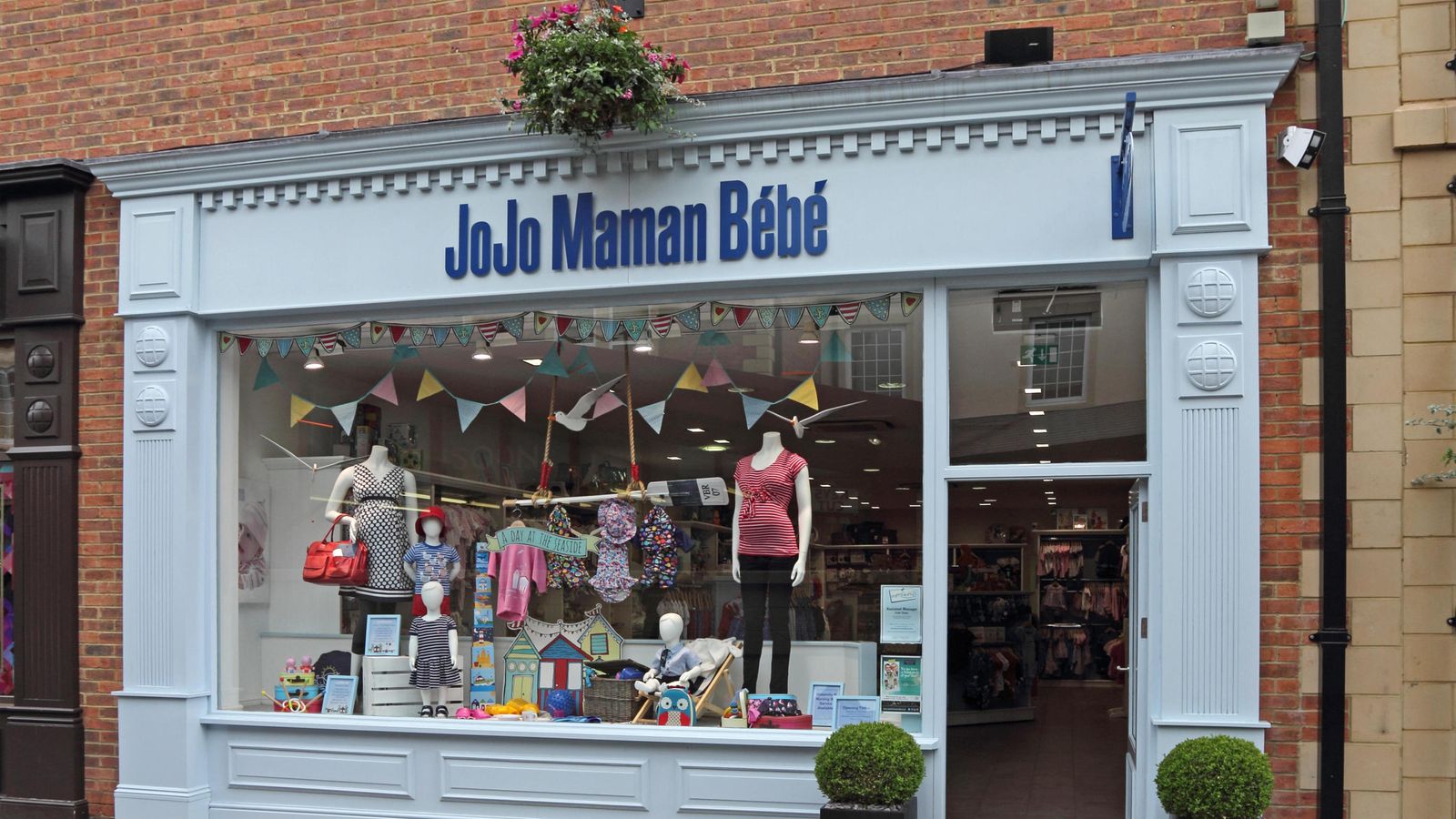JoJo Maman Bebe has said that surging shipping costs meant it would have to implement its most significant price rises for five years.
The baby goods retailer said that those costs had quadrupled in the past 18 months while it had also been hit by paper and wood shortages delaying the delivery of its products.
It comes as figures from the British Retail Consortium (BRC) suggested that rising costs were already starting to filter through to consumers in August.
Please use Chrome browser for a more accessible video player
JoJo’s commercial director Gwynn Milligan, said: “We have seen shipping costs quadrupling in the past 18 months and have had to review our prices to an extent that we have not had to do for five years.
“We have also been affected by paper and wood shortages which has meant longer lead times for delivery of product.”
JoJo said price increases would affect this season’s collection, but that it was also selling some Christmas stock early that had not been affected.
It comes as a monthly shop price index from the BRC and NielsenIQ showed that, while prices were 0.8% lower in August compared to the same month last year, they rose by 0.4% from June.
BRC chief executive Helen Dickinson said: “There are some modest indications that rising costs are starting to filter through into product prices.”
Ms Dickinson said issues such as the global shortage of microchips had already pushed up the prices of electrical products. She added that food retailers were fighting to keep the lid on their prices, but faced mounting pressures from rising commodity and shipping costs to Brexit-related red tape.
Please use Chrome browser for a more accessible video player
Ms Dickinson said food price rises were likely in coming months.
Meanwhile, disruption caused by the widely-reported shortage of lorry drivers could mean reduced choice and increased prices of goods in shops in the run-up to Christmas, she added.
The end of pandemic lockdowns has resulted in a worldwide jolt to supply chains as demand ramps up again – in some cases resulting in higher prices.
Central bank officials in the UK and the US maintain that the resultant spike in inflation is transitory – but if it proves not to be they will face a tough decision on whether to start raising ultra-low interest rates to combat the price rises.






















